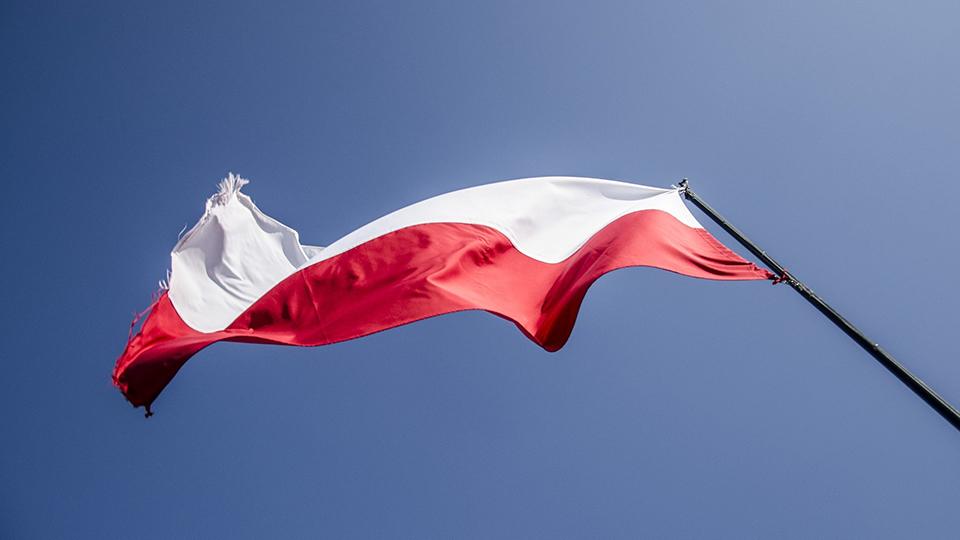Populism loses its appeal as pandemic continues
Primary page content
People in Poland are becoming less susceptible to divisive populist messages as the Covid-19 crisis continues, early research from Goldsmiths, University of London suggests.

Dr Agnieszka Golec de Zavala spent six weeks collecting real-time data on the relationships between authoritarianism, national cohesion and sexual prejudice as the coronavirus pandemic spread and the Polish government enforced lockdown measures.
Her survey showed that support for right-wing authoritarianism, national cohesion and the belief that non-traditional women and sexual minorities threaten national survival by not having children, increased during the first four weeks of the pandemic, peaking at week four.
But by the sixth week authoritarian attitudes and stigmatisation of sexual minorities had started to decrease, indicating disenchantment by the government’s divisive social politics. This decrease was accompanied by a significant drop in trust in the government, while trust towards fellow citizens during the pandemic remained the same between week four and six. This fall in support coincided with the time the government was pushing to ban abortions and sexual education and trying to rally public support for the idea.
Typically, a crisis which increases perceptions of a threat causes a ‘conservative shift’ in populations. This so-called ‘rally around the flag’ effect can then be exploited by populist leaders. In the case of Covid-19 in Poland, data suggests that while this conservative shift happened in the early weeks of the pandemic, more people are now starting to support socially cohesive values, such as collective responsibility, and are moving toward greater co-operation and compassion.
Dr Agnieszka Golec de Zavala from the Department of Psychology at Goldsmiths suggests that people in many countries – not just Poland - are beginning to realise that populist governments have mishandled and downplayed the pandemic and it has led to increases in loss of life.
Dr Golec de Zavala says: “In Poland it is quite a dramatic change, but this can also be observed here in the UK, where the current government is being criticised more and more.”
Her data also show that as the pandemic continues the number of people who say they would vote in an upcoming presidential election decreased dramatically in week four. This indicates that they may have become disillusioned with current politics, and would not support unconstitutional measures proposed by the government – including bringing forward the election during a pandemic to be held on 10 May.
Writing on the Department of Psychology blog ahead of a formal publication of their study, Dr Golec de Zavala and PhD student Oliver Keenan, who helped with the write-up of the analyses, say that there is now widespread realisation that “despite all their rhetoric, populist leaders do not actually care about the people they claim to represent.”
Data was collected from a final sample of 829 adults in Poland four times over a six week period, before the first coronavirus case was detected in the country (4 March), then after two, four, and six weeks.
The first lockdown measures were introduced between 10-12 March and strengthened on the 25th.
The anti-abortion project came back onto the Polish parliament’s agenda on 7 April, to be discussed on 16 April. Governments in Hungary and the US have also aimed to extend or enact policies which attack women and sexual minorities during this time period.
PrejudiceLab, headed by Dr Golec de Zavala, continues to monitor social attitudes in Poland in the unfolding pandemic. Their results are updated every two weeks on the website https://collectivenarcissism.com/pandemic/monitor
Read more on the Department of Psychology blog
Dr Agnieszka Golec de Zavala is a Reader at the Department of Psychology and head of the PrejudiceLab. Her research covers social identity, narcissism and collective narcissism, and the psychological predictors of political conservatism among other subjects. Oliver Keenan holds a BSc (Hons) in Psychology and MSc in Psychology of Social Relations from Goldsmiths and is working toward his PhD in the PrejudiceLab, a unit in the Department of Psychology.